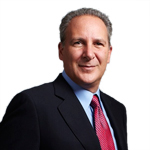
Malaysia — Aggressive stimulus spending by governments helped the world avoid a second Great Depression but full economic recovery will take two years or more, Nobel Prize-winning economist Paul Krugman (pictured left) said Monday. Krugman said the worst of the global crisis was over with economic and exports growth showing signs of stabilization. Still, recovery was likely to be "disappointing" as government spending wasn't sustainable in the long-run and unemployment rate still lagging behind, he told a two-day world capital markets conference here. – Forbes
Dominant Social Theme: Thanks goodness for the wise men.
Free-Market Analysis: Paul Krugman is a Nobel prize-winning economist, and his take on what's happened with the financial crisis is surely one to be reckoned with. It is the narrative that the mainstream news media will likely utilize over the coming weeks and months. We believe this narrative will find its way into the mainstream history books as well. Krugman's perspective is obviously that central banking leaders reacted to the economic downturn with alacrity and "saved the day" by injecting trillions into staggering Western economies. Here's some more from Krugman:
Krugman said there was still room for the U.S. government to increase spending to boost growth, despite concerns over its swollen budget deficit. Krugman, who teaches at Princeton University, won the Nobel Prize in Economic Sciences last year for his analysis of how economies of scale can affect international trade patterns. He also writes columns for The New York Times. He said there was a need to restructure the global financial system and impose tighter regulations to avoid a repeat of the economic crisis, but expressed concern that the momentum for reforms appeared to be easing. "We do not have the political will to do that just yet … I suspect clever people can still make a lot of money from the financial system in the next few years," he warned.
The bottom line problem from our perspective is that central banking is price fixing. It is self-admittedly a process whereby a group of bankers target a certain interest rate level and then utilize the various powerful financial levers available to them, including the "printing" of paper money. This price-fixing lies at the heart of the Western monetary system and price-fixing does not work. One of the West's criticisms of the USSR was that the dysfunctional Russian government micro-managed the economy, setting prices via five-year industrial plans and other techniques. Price-fixing causes scarcity, queues and rationing. It is not a substitute for the market. Eventually the USSR's mispricing became so inefficient, that the economy collapsed.
But, according to the article, Krugman moves beyond central banking in his explanation of how the economy has turned around. Having indicated that central banks deserve credit for monetary easing, he calls for more regulation of the global financial system to ensure that the financial crisis does not reappear. This means that Krugman believes that failures of the marketplace were responsible for the crisis. If he believed that prior regulatory regimes had been responsible for the difficulties, he would have called for fewer regs. Instead he calls for more.
To summarize: Krugman apparently believes that an institution that fixes prices (central banking) is responsible for saving the world's economy by printing a great deal of paper money. He also believes that the market itself needs fixing through more government oversight. Krugman, the recipient of a Nobel Prize, believes in price-fixing but does not have faith in free-markets. How is this possible?
Not even 100 years ago, the Western world, including its leaders believed in a gold standard and respected the efficacy and efficiency of markets. There was a minimal regulatory regime as applied to markets and most financial problems occurred when government stepped into private markets and created bubbles by financing monetary hyper-expansion. It was in this environment that free-market economic philosophy advanced via the Austrian School. Marginal utility became the dividing line between classical and neo-classical economics.

Marginal utility, the basic building block of modern economics, teaches us that price is variable at the margins and can only be determined by the market itself. The great free-market economist Ludwig von Mises taught us about human action, the idea that economic trend-projection is inevitably flawed because when a tipping point is approached, human beings inevitably take action to avoid whatever disaster looms. These are incontrovertible economic facts, yet Krugman seems not to recognize them. Nor do those who gave him his prestigious prize. Strange.
